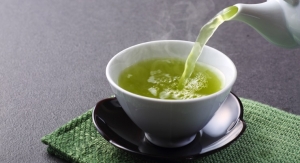05.02.17
KSM-66 Ashwagandha supplementation over 8 weeks significantly improved immediate memory and general memory function, relative to placebo, according to a clinical trial published in the Journal of Dietary Supplements
There was also substantial improvement in attention, information processing speed and executive function. The randomized, double-blind, placebo-controlled trial had a sample size of 50 subjects. Scientists hypothesize that the acetyl-choline-esterase inhibitory property of ashwagandha is responsible for its beneficial effects on memory and cognitive function. These findings are noteworthy because they indicate that KSM-66 Ashwagandha can help to improve cognitive functioning.
Kartikeya Baldwa, director of Ixoreal Biomed, the marketer of KSM-66, said: "Ashwagandha is classified in Ayurveda as a ‘Medha Rasayana,’ an agent which improves memory and intellectual capacity, and is prescribed by traditional practitioners as a memory booster in children and adults. This paper is an important contribution to the research literature because it presents a rigorous clinical trial validating this traditional application. This is the first clinical study using a standardized, branded ashwagandha root extract that demonstrates significant positive effects on cognitive functioning in heathy subjects. We are happy that this study got published in the Journal of Dietary Supplements, a PubMed-indexed journal known for innovative research in the domain of health supplements."
Mr. Baldwa added: "The scientific literature indicates that the ashwagandha root is a calming agent, improves focus and attention, facilitates choline production in the body, which in turn influences key memory processes. Moreover, ashwagandha has antioxidant effects that may protect from nerve cell degeneration. The present publication bolsters the clinical usage of KSM-66 as a brain health supplement. There are now a total of 21 studies on KSM-66—13 completed studies and 8 in progress.”
There was also substantial improvement in attention, information processing speed and executive function. The randomized, double-blind, placebo-controlled trial had a sample size of 50 subjects. Scientists hypothesize that the acetyl-choline-esterase inhibitory property of ashwagandha is responsible for its beneficial effects on memory and cognitive function. These findings are noteworthy because they indicate that KSM-66 Ashwagandha can help to improve cognitive functioning.
Kartikeya Baldwa, director of Ixoreal Biomed, the marketer of KSM-66, said: "Ashwagandha is classified in Ayurveda as a ‘Medha Rasayana,’ an agent which improves memory and intellectual capacity, and is prescribed by traditional practitioners as a memory booster in children and adults. This paper is an important contribution to the research literature because it presents a rigorous clinical trial validating this traditional application. This is the first clinical study using a standardized, branded ashwagandha root extract that demonstrates significant positive effects on cognitive functioning in heathy subjects. We are happy that this study got published in the Journal of Dietary Supplements, a PubMed-indexed journal known for innovative research in the domain of health supplements."
Mr. Baldwa added: "The scientific literature indicates that the ashwagandha root is a calming agent, improves focus and attention, facilitates choline production in the body, which in turn influences key memory processes. Moreover, ashwagandha has antioxidant effects that may protect from nerve cell degeneration. The present publication bolsters the clinical usage of KSM-66 as a brain health supplement. There are now a total of 21 studies on KSM-66—13 completed studies and 8 in progress.”





















